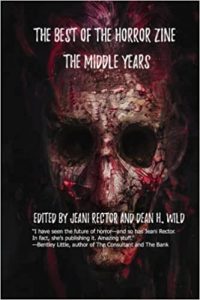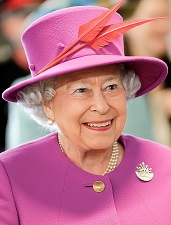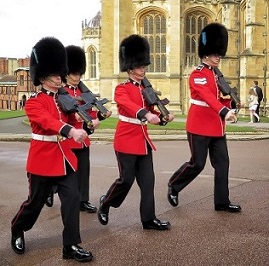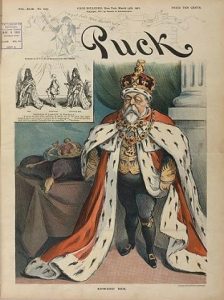
© Fay Godwin / The Paris Review
Recent events have inspired me to update and repost this, which first appeared on this blog in 2019, on the tenth anniversary of J.G. Ballard’s death.
The visionary writer James Graham Ballard, known to his readers as ‘J.G.’, officially succumbed to prostate cancer and ceased to be a presence in our universe in April 2009. However, the past 13 years have been so baroquely and surreally insane that at times I’ve had a troubling thought. In 2009, did Ballard cease to exist in the universe or did the reverse happen? Did the universe stop existing as a physical entity at that moment and, since then, has it continued only as a figment of J.G. Ballard’s imagination?
Could we be living now as ghosts in Ballard’s fiction without realising it?
Recent historical trends have suggested this is not merely a crazy hypothesis on my part. The fact that people are finally talking seriously about the dire threat to human civilisation posed by global warming – talking seriously but, alas, still doing very little about it – makes me think of Ballard’s 1962 novel The Drowned World, where climate change has jacked up the temperatures, melted the ice caps, inundated London with water and turned the city into a balmy and hallucinogenic landscape of lagoons and tropical flora and fauna; or the following year’s novel with the self-explanatory title The Drought; or his 1961 short story Deep End, where ‘oxygen mining’ has drained the oceans and a few remaining humans skulk around their dried-out beds at night-time, when the heat and radiation levels aren’t as lethal as they are in the daytime.
Meanwhile, our ever-spiralling-out-of-control and ecologically suicidal dependency on the internal combustion engine, and the social maladies (like road rage) that go with it, make me think of 1973’s Crash – the initial manuscript of which caused one publisher’s reader to splutter, “This author is beyond psychiatric help.” Whereas the increasing fragmentation of society through the proliferation of social media platforms and devices brings to mind Ballard’s short story The Intensive Care Unit, which turned up in the 1982 collection Myths of the Near Future and contained the prophetic line, “All interaction is mediated through personal cameras and TV screens.” And the tendency among the elite to shut themselves off in gated communities, where they not only relax, play and sleep but also, increasingly, work, evokes such novels as 1975’s High Rise and 2000’s Super-Cannes – where in both cases the set-up memorably ends in tears.

© Penguin Books / David Pelham
More generally, spending a few minutes channel-surfing through TV’s 24/7 news outlets is enough to make you feel you’re inhabiting Ballard’s experimental, narrative-less collage of ‘condensed novels’, 1970’s aptly-titled The Atrocity Exhibition. And the sorry state of America, where the now openly authoritarian Republican Party could easily win the presidency in 2024 and return Donald Trump to the White House, reminds me of his 1981 novel Hello America, which has an ecologically devastated USA run by someone calling himself ‘President Charles Manson’.
And as I witness the madness of Brexit in the UK, facilitated by a cadre of rich, privately-educated posh-boys like Nigel Farage, Jacob Rees Mogg and Boris Johnson, I can think of half-a-dozen Ballard stories that have rich, privately-educated Britishers losing their marbles, becoming unhinged and embracing chaos and catastrophe.
Indeed, events in the UK at the moment, with all of its media, most of its politicians and a large part of its public indulging in near-deranged displays of grief over the death of a 96-year-old lady worth something between 370 and 500 million pounds while the country totters into a potentially disastrous cost-of-living crisis, are all very ‘Ballardian’. ‘The Queue’ – the term applied to the line of mourners spending 24 hours shuffling across ten kilometres of London in order to view the Queen’s coffin at Westminster Abbey – could easily have been the title, and plot-premise, of one of Ballard’s novels or short stories. Meanwhile, the much-publicised behaviour of the Centre Parcs holiday-villages company, which first tried to evict its vacationing residents on the day of the Queen’s funeral, then relented but warned them to stay inside their lodges on the day, prompted author Paul McAuley to send out a tweet slightly rephrasing Ballard’s most famous opening sentence, the one that kicked off High Rise: “Later, as he sat on his balcony eating the dog, Dr Robert Laing reflected on the unusual events that had taken place within this Centre Parcs village the previous three months.”
Occasionally, the idea that we could be living unawares in a giant virtual-reality system dreamed into existence by J.G. Ballard strikes me on a personal level. For example, while I was living in Tunisia just after the 2011 revolution and the advent of the so-called Arab Spring, I arranged one afternoon to meet up with friends in Carthage, the swankiest of Tunis’s suburbs. My friends hadn’t appeared yet when I got off at the TCM station, next door to Carthage’s branch of the French supermarket-chain Monoprix. So, I waited there and passed the time by reading a few pages of Ballard’s final novel, 2006’s Kingdom Come. It took me a minute to notice that the Monoprix was closed. And not just closed. During the revolution, it’d been trashed and looted and left a razed shell. Its ruins looked sinisterly incongruous in the middle of this plush neighbourhood of high white walls and thick iron gates, four-by-fours and swimming pools, orange trees and jasmine plants. And what was Kingdom Come about? A community succumbing to dystopian chaos thanks to the arrival of a fancy new shopping centre.
It’s been claimed that Ballard’s writing wasn’t influenced so much by other fiction (except perhaps that of William S. Burroughs) as by visual forces like surrealism and Dadaism and the ‘media landscape’ of modern-day advertising and consumerism. But I have to say I find him a very traditional author in some ways. Reality may be crumbling around the edges of his scenarios, but at the same time he shows an admirable commitment to telling a gripping, old-fashioned yarn. Stiff-upper-lipped British types – emotionally-repressed, able only to address each other by their surnames as if they were still back at boarding school – have adventures in exotic locales while they try to do the right thing, though as some hallucinogenic apocalypse unfolds and madness leaks into their thought processes, they invariably end up doing the wrong thing.

© Penguin Books / David Pelham
Ballard’s work calls to mind – my mind, anyway – the work of another storyteller not adverse to spicing his highbrow themes with derring-do and intrigue, Graham Greene. Indeed, I’ve sometimes thought of Greene as a mirror image of Ballard. That’s with Greene in the real world, though, posing before a fairground mirror and with Ballard as his warped, twisted reflection. While Greene’s characters are usually tortured by Catholicism, Ballard’s usually have to contend with creeping and finally overwhelming psychosis.
And besides Greene, another literary influence on Ballard is surely Joseph Conrad. I wouldn’t say Conrad’s Heart of Darkness (1899) lurks in the DNA of every Ballard story, but a good many of them feature darkness of some form and, yes, a character who feels duty-bound to journey into the heart of it. When I was in my mid-teens, the first book by Ballard I ever read was his short-story collection The Terminal Beach (1964) and its opening story, A Question of Re-entry, begins with these deliciously Conradian lines: “All day they had moved steadily upstream, occasionally pausing to raise the propeller and cut away the knots of weed, and by two o’clock had covered some 75 miles… Now and then the channel would widen into a flat expanse of what appeared to be stationary water, the slow oily swells which disturbed its surface transforming it into a sluggish mirror of the distant, enigmatic sky, the islands of rotten balsa logs refracted by the layers of haze like the drifting archipelagos of a dream. Then the channel would narrow again and the cooling jungle darkness enveloped the launch.”
Those introductory lines so captivated me that, from that moment on, I was completely hooked on Ballard’s work.
Now, 40 years later, I still haven’t quite read everything by him. For the record, though, here are my favourite things among what I have read. Among his novels, The Drowned World, Crash, High Rise, Hello America, Empire of the Sun (1984) and Rushing to Paradise (1994).
Good though his novels are, I think his short fiction is even better. Picking a favourite dozen from his short stories is a near-impossible task, but I’ll have a go. Off the top of my head, I would nominate A Question of Re-entry, Deep End, The Illuminated Man – later expanded into the 1966 novel The Crystal World – and The Drowned Giant from The Terminal Beach; Chronopolis, The Garden of Time and The Watch Towers from the collection The 4-Dimensional Nightmare (1963); Concentration City and Now Wakes the Sea from The Disaster Area (1967); The Smile from Myths of the Near Future; and The Enormous Space and The Air Disaster from War Fever (1990).
Meanwhile, of his 19 novels, I have yet to read 1961’s The Wind from Nowhere, 1988’s Running Wild and 1996’s Cocaine Nights. And there’s at least one of his short story collections, 1976’s Low-Flying Aircraft, that I haven’t read either. Which is good. I might be an old git now, but I’m glad that reading some new stuff by J.G. Ballard is still one of the things I can look forward to in life.

© Penguin Books / David Pelham












